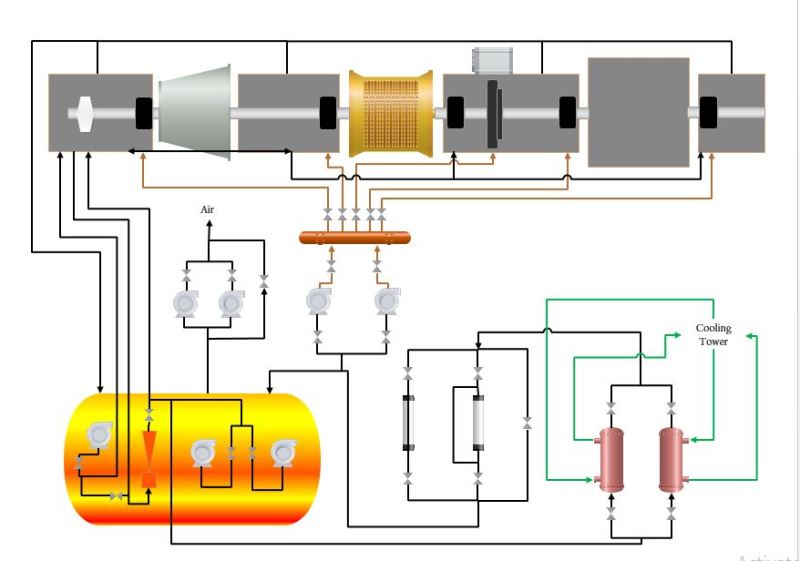So the heater only operated during start-up after the system stopped operating for long period of time? Or also operate when the system is operating under normal conditions?
Yes to the first, no to the second. To expand on that:
In accordance with what byrdj noted as common behaviour, when the units [there were eight of them] were in normal operation, the turbine oil temperature rose significantly, necessitating the continuous use of oil coolers.
When a unit was being returned to service after an extended maintenance outage involving turbine disassembly, the turbine was placed on turning gear for varying lengths of time, almost universally measured in days, to eliminate any shaft sag that would have occurred during the maintenance period.
In anticipation of the unit being placed on turning gear, the turbine oil would be brought up to within its normal shutdown range using said electric heaters; other than then, they were not commonly active.
In the "shoulder" seasons [spring and fall] when power demand was generally lighter and few if any units might be required in service over a long weekend, the outdoor temperatures were such that even within an uninsulated plant the indoor temperatures did not fall sufficiently to thicken the oil to an unacceptable degree...as long as the units remained on turning gear, which they normally were.
And during long weekends with bitterly cold weather, one unit was kept in service at minimum load so it could supply extraction steam or, in extreme cases, pressure-reduced and desuperheated live steam, to the building heating system, keeping the plant interior at a minimum of 15°C, so again, the electric turbine oil heaters did not [normally] come into service.
CR
"As iron sharpens iron, so one person sharpens another." [Proverbs 27:17, NIV]


